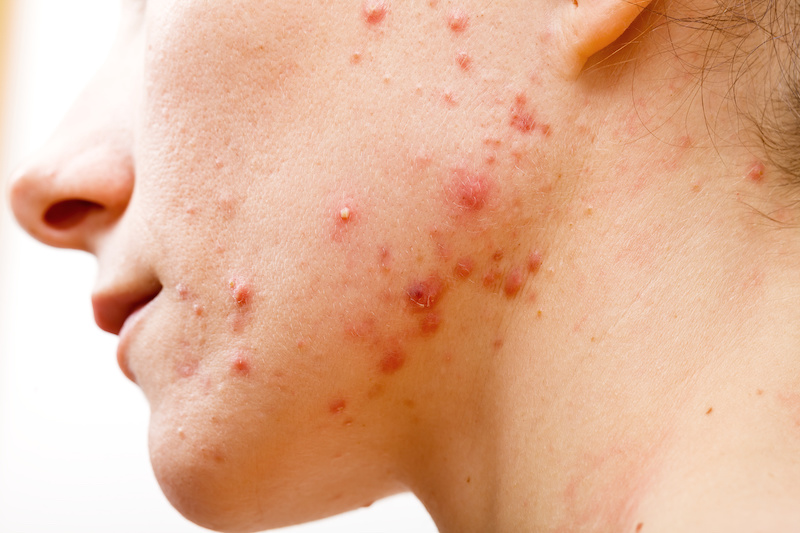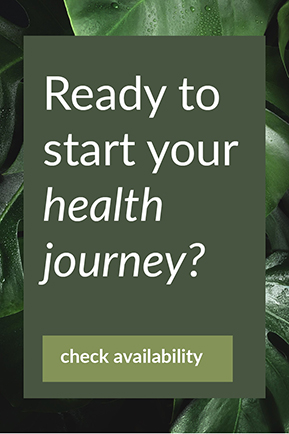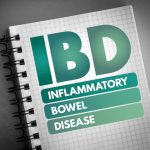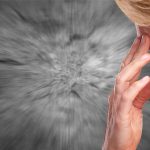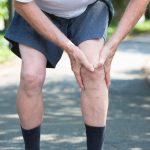Acne is an extremely common health complaint in Australia, affecting 85% of young people aged 15-24. Even mild acne can significantly impact your wellbeing, self-esteem and quality of life. It can be a frustrating issue to address, particularly when there is so much conflicting advice available for young people online. This handout provides you with plenty of information about the underlying triggers of acne, as well as tools and strategies for reducing acne symptoms and improving your skin health for the long term.
As a naturopath, my unique treatment plans for each client will be developed around the type and causes of your acne however certain dietary and lifestyle strategies are appropriate for all acne cases as mentioned below in this blog.
So, what is Acne?
Acne vulgaris, more commonly known simply as acne, is an extremely common inflammatory skin condition that affects primarily the face, chest, shoulders, and back. It most commonly affects teens, although it can occur at any age. Symptoms range from mild to severe – some people may experience only a spot or two around the time of their period, while others may have significant inflammation, pimples, and boils over large areas of their skin.
There are four key steps in the process of acne:
- Hyperkeratinisation
Too much keratin (the protein our skin and nails are made of) is produced, leading to blocked pores. This process occurs as a protective measure by the skin due to inflammation.
- Increased sebum production
High levels of sebum (skin oil) are produced, including inside the blocked pores. This high sebum production is triggered by high levels of testosterone and DHT, two “male” type hormones (also known as androgens). Our oil glands are larger and more active on our face, chest, back and shoulders, which is why these are the most typical areas for acne to occur.
- Bacterial proliferation
Bacteria on the skin – specifically the Cutibacterium acnes species – proliferate inside the blocked pores, as it uses the sebum as an energy source.
- Inflammation
The body responds to the bacterial infiltration inside the pore by initiating an immune response and increasing inflammation in the area. It is this immune response that leads to the redness, swelling and pus formation seen in acne lesions.
Causes and Triggers of Acne
- Hormonal Imbalance
Hormonal imbalance is a common underlying issue when it comes to acne. High testosterone (or an increased sensitivity to a normal amount of testosterone) is the typical underlying factor when it comes to hormonal acne. Testosterone and other androgens (“male” type hormones) signal to the skin to increase sebum production, directly worsening acne. Hormone imbalances can occur for a number of reasons, including:
- Overproduction of androgens – either the ovaries are overproducing testosterone, or the adrenal glands are overproducing DHEA. Both testosterone and DHEA can contribute to acne. This is often seen in PCOS and can be due to underlying insulin resistance.
- Underproduction of oestrogen, which leads to a high androgen to oestrogen ratio.
- Rapid changes in hormone levels can also play a role in acne, which is why acne may be worse at certain times of your cycle (such as during menstruation) or may be worse during pregnancy or menopause.
- Hormonal birth control with a high androgen index (high levels of “male” hormones), such as the Mirena IUD, Nexplanon implant, Nuvaring, and certain birth control pills.
- Poor liver function – the liver produces an important molecule called SHBG, which is needed for transporting excess hormones out of the body via the gut. If insufficient levels of SHBG are being produced, hormones can become unbalanced and both testosterone and oestrogen can become too high.
2. Inflammation
Chronic inflammation is another common trigger for acne. Inflammation can occur because of:
- Diet: inflammatory foods such as dairy, wheat, and sugar
- Food intolerances
- Digestive issues, IBS, coeliac disease
- Dysbiosis
Dysbiosis, e.g. high levels of “bad” bacteria and lower levels of “good” bacteria in the gut. This can be due to a huge number of reasons, including:
- IBS, coeliac disease, Crohn’s disease, or other digestive disorders
- Antibiotic use
- Diet low in fibre-rich foods (fruits, vegetables, nuts, seeds, legumes)
- Slow gut transit (constipation)
- Coming off the pill
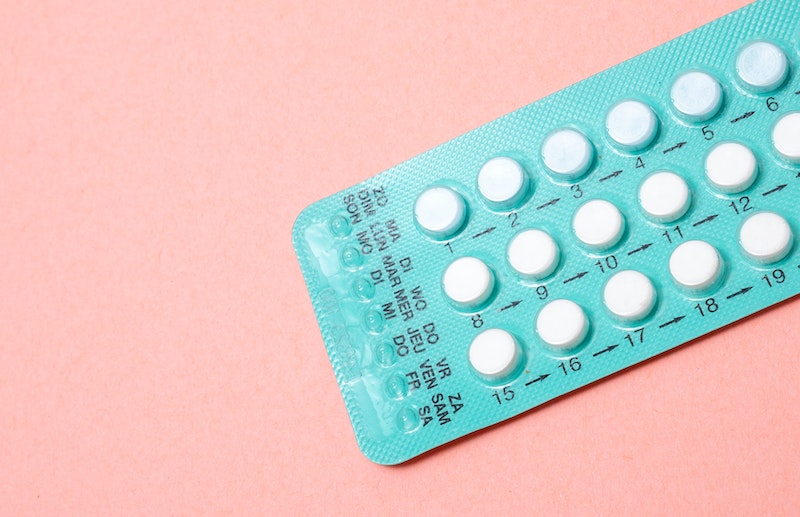
3. Post-Pill Acne
Post-pill acne is a common sub-type of acne. Certain types of hormonal birth control pill, suppress the production of sebum to abnormally low levels – this is one of the reasons why they are prescribed to women with acne. Unfortunately, when you stop taking these pills, the skin responds by turning up oil production in the skin, sometimes for many months after you’ve finished taking the pill. At the same time, your hormone levels can become unbalanced, as your ovaries begin producing higher levels of hormones again. This combination of higher sebum production and higher testosterone levels, while temporary, can cause issues for up to a year or more after you stop taking the pill.
The withdrawal process from your sebum supressing oral contraceptive drug will take some time however it will come to an end which is good news. The peak of symptoms over this 12 month period is normally at 3-6 months after coming off the pill which is why preparing to come off the pill for 3 months is always recommended for clients as this will support a less aggressive reaction from your body. You may need to use barrier contraception if androgen reducing herbs and supplements are prescribed as this may impact the effectiveness of your oral contraception over this preparation period. As a naturopath, I work closely with a lot of women who want to come off the pill, have a track record of acne and want to minimise their acne severity.
- Insulin Resistance
Acne is sometimes to referred to as “the diabetes of the skin”, because it is so often tied to underlying insulin resistance issues. Insulin resistance causes oestrogen to be converted into androgens like testosterone, DHT, and DHEA. As seen above, androgens are a significant problem when it comes to acne, so insulin resistance needs to be addressed to reduce acne symptoms.
- Poor Digestion and Elimination
The skin is the body’s largest organ and is one of several important channels of elimination in the body, which includes the bowels, the kidneys, and the lungs. If one of these other elimination channels aren’t working optimally, there can be increased pressure on the skin to eliminate toxins and metabolic wastes from the body, leading to congestion in the skin. Symptoms such as constipation may indicate that your digestive system isn’t working as it should and might be contributing to your acne symptoms.
- Stress
Stress can make acne worse, as cortisol not only causes increased levels of androgens, but can also stimulate the production of sebum directly.
Naturopathic Treatment Strategies for Acne
Testing
Possible testing that may be ordered for you including hormones, blood glucose and more.
Dietary Strategies
Eliminate Dairy
Dairy, and especially A1 dairy (which contains the inflammatory protein casein) should be completely eliminated from the diet as it increases the production of Insulin Growth Hormone Factor (IGF-1), which leads to high sebum production in the skin and worsens acne.
Reduce Sugar Intake and Eliminate Added Refined Sugar
All forms of refined sugar should be eliminated from the diet. Sugar consumption leads to high blood sugar and insulin levels, causes IGF-1 levels to spike, and is a highly inflammatory food. Read the labels of foods and be wary of wording on ingredient lists. Even “natural sugar” as an ingredient means extra sugar has been added to the food and home-made smoothies & protein balls can also cause trouble if not made well. Check out the blog post here for more info. Working with you on your diet and hidden sugars is always an important part of an acne treatment plan.
Cutting sugar from your diet can be tough, but is crucial and once we have balanced insulin, you will be able to enjoy the occasional sweet treat again I promise and some substitutes for the journey.
Eliminate “diet” foods and artificial sweeteners
Whilst these foods are typically low in sugar, they still negatively impact gut bacteria and contribute to high blood sugar levels and worsen insulin resistance. Foods such as diet soft drinks and “low sugar” lollies are particularly bad culprits, as well as “equal” and “sweet n’ low”.
Reduce Alcohol Intake
Another inflammatory food, and one that is generally full of sugar, too. Limit alcohol intake to no more than one standard drink per day and try to have plenty of alcohol-free days. When you do drink, choose low-sugar and high-antioxidant options, such as an organic red wine – there are plenty of great organic wines available these days.
Consider Eliminating Wheat
As with dairy, wheat is a highly inflammatory food, and one that is found in a huge number of food products. To best approach reducing acne, it is worthwhile considering eliminating wheat from your diet, and choosing wheat- and gluten-free foods. Wheat is used in bread, cake, cookies, biscuits, crackers, and pastries, and is also an ingredient in many processed foods.
Identify and Eliminate Food Intolerances
Exposure to food intolerances triggers inflammation as the body reacts to the “threat” of the food you are reactive to. Over time this can lead to significant chronic inflammation and gut damage and can worsen issues like acne. Common food intolerances which often impact those with acne include dairy and gluten/ wheat, but there are many other foods that can cause issues. A thorough naturopathic consultation will help understand what you may be reacting to.
Avoid Inflammatory Vegetable Oils
Certain vegetable oils increase inflammation and can make acne worse. These include sunflower, canola, soy, and corn oils. Instead, choose extra virgin olive oil, avocado oil, hemp seed oil, and avocado oils for use in cooking, and for making your own salad dressings.
Reduce Caffeine Intake
Caffeine triggers our “fight or flight” response and increases cortisol levels, which can upset normal hormonal balance and worsen your acne. Reduce your overall intake (ideally no more than one coffee per day) and be sure to consume caffeine in the morning, to reduce its impact on your sleep. Caffeine is primarily found in coffee, tea, chocolate, and energy drinks.
Eliminate high histamine foods
Foods high in histamine can increase inflammation, making acne worse. For more information on histamine, see our blog post here.
Eat Plenty of Anti-Inflammatory Fruits and Vegetables
Fresh fruits and vegetables provide many of the building blocks necessary for fighting inflammation, acne, and improving skin health, such as antioxidants, vitamins, and minerals, and even fibre for gut health and a healthy microbiome. Choose fruits and vegetables in a variety of colours to maximise your intake of different nutrients. For vegetables with edible skins, eating with the skin on can further increase insoluble fibre intake – but be sure to choose organic varieties and scrub the skins well before eating. Aim for 5 or more serves of vegetables or pulses each day, and 2 serves of fruit.
Eat Phytoestrogen-Rich Plant Foods
Phytoestrogens are molecules found in many plant foods which can bind to oestrogen receptors in the body. Phytoestrogens have a bad rap in Western culture as being damaging to our health, but this unfortunate misconception is due to a misunderstanding of how these molecules really work. They are actually able to re-balance oestrogen levels in the body, so can be very helpful with hormonal acne.
Phytoestrogens can be found in a huge range of foods, including:
- Organic soy products, such as tofu
- Ground flax seeds
- Chickpeas
- Linseed
- Mung beans
- Olives
- Pumpkin seeds
- Parsley
- Buckwheat
- Whole grains
- Sesame seeds
- Sunflower seeds
Eat Anti-Inflammatory Omega 3-Rich Foods
Omega 3 fatty acids are wonderful anti-inflammatory fats that can help to reduce some of the inflammation that makes acne worse. Omega 3 fatty acids are found in fatty fish (salmon, tuna, anchovies, sardines), walnuts, hemp seeds and hemp seed oil, flax seeds, and chia seeds.
Drink at least 2 litres of (filtered) water each day
Water is absolutely vital for ensuring your body can remove toxins. This is particularly important if your acne symptoms are associated with reduced elimination channel function, such as liver issues or constipation. Many of the herbs used to help with acne increase detoxification pathways, and without adequate hydration to move these toxins out via the kidneys and bowels, acne symptoms can be aggravated as the skin tries to remove toxins. Avoid tap water due to small amounts of heavy metals like lead and copper, and both bottled and tap water contain microplastics. Filtered water is the best option.
Eat Protein and Healthy Fats with Every Meal
Quality protein and healthy fats with every meal will help to balance blood sugar levels and promote healthy insulin functioning, too. Choose a variety of protein sources and remember not to overdo the animal-based products (meat and eggs). Good quality sources of protein can be found in legumes (lentils, chickpeas, black beans, kidney beans, cannellini beans), tofu, tempeh, edamame beans, quinoa, nuts (walnuts, almonds, cashews, Brazil nuts), seeds (hemp seeds, sunflower seeds, chia seeds, pumpkin seeds), and mushrooms. Be sure to build your meals and snacks around the protein source to make sure you’re not accidentally consuming too much carbohydrate. Add a good quality source of healthy fats as well – avocado, extra virgin olive oil, olives, or some nuts and seeds are all great options.
Use fresh herbs and spices
Herbs and spices are a fantastic source of antioxidants and are important for improving insulin functioning and fighting inflammation. Some spices, such as cinnamon, also directly increase the body’s sensitivity to insulin. Add to cooked meals, or even chop and use raw in salads and smoothies. There are a huge range of herbs and spices out there that are readily available fresh, so get creative! Some particularly good ones to try and include are turmeric, garlic, ginger, rosemary, coriander, basil, parsley, dill, chives, etc, can all be found in the fresh food section of the supermarket or are very easy to grow in a kitchen garden. Herbs can be used in soups, stews, homemade sauces, to flavour baked vegetables, or added fresh to salads.
Eat regularly and avoid skipping meals
Eating regularly through the day helps to prevent blood sugar levels from dipping and spiking throughout the day, which can make it more difficult to stabilise insulin secretion. Try eating snacks between your 3 main meals, or switch to eating 5 smaller meals per day. To prevent skipping meals, try keeping a snack on hand – such as a handful of nuts and seeds in a container – so that you’re not caught out when you’re out and about through the day.
Eat Plenty of Zinc-Rich Foods
Zinc is a powerhouse mineral that is involved in hundreds of processes in the body, and is a vital nutrient to consider when it comes to zinc, because it can:
- Reduce inflammation
- Helps the skin to heal by promoting collagen production
- Reduces overproduction of testosterone back to normal levels
- Kills bacteria, including those associated with acne
- Helps to heal the lining of the gut, reducing the effects of bacterial overgrowth and dysbiosis
- Reduces cortisol and the stress response
Zinc can be found in foods such as red meat, poultry, oysters, whole grains, pumpkin seeds, sunflower seeds, legumes (lentils, chickpeas, beans), cashews, and almonds.
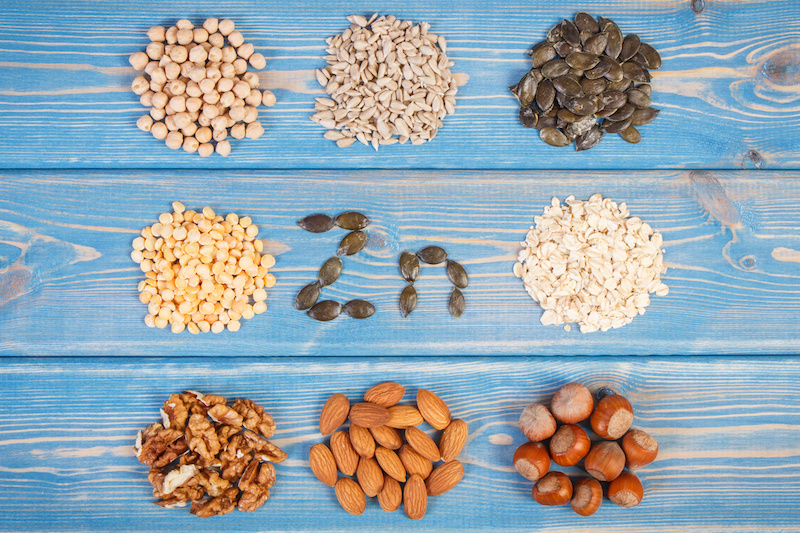
Lifestyle Strategies
Reduce Stress
Stress has a huge impact on hormone health, as high cortisol (the stress hormone) disrupts healthy hormonal balance. Chronic stress also triggers inflammatory pathways in the body and has been shown to worsen symptoms of acne. You can help to combat the effect of stress with the following:
- Mindfulness meditation – even 10 minutes per day of mindfulness meditation can help reduce feelings of stress. Many meditation studios offer online classes, or you can use an app such as “insight timer” for access to thousands of guided meditations for free.
- Yoga or tai chi – as with meditation, these are both wonderful for helping to release stress. There are many apps available online, or you can try YouTube for free videos as well – “Yoga with Adrienne” is a popular YouTube channel with dozens of free videos to try.
- Counselling or psychology – if you don’t already have a regular counsellor or psychologist, it is worthwhile pursuing this. Having someone you can speak to about stressors in your life can make a huge impact on both your physical and mental wellbeing.
Skin Care
The following tips can be helpful with acne:
- Use cosmetics sparingly, to avoid further blocking pores
- Wash face gently with an unscented cleanser – avoid harsh cleansing agents and perfumes which can irritate already sensitive and inflamed skin
- Avoid picking at or squeezing pimples, as this can spread bacteria and worsen inflammation
- If you shave your face, use a new razor blade each time to reduce the risk of infection
Naturopathic Herbs and Supplements
Each naturopathic treatment plan is unique depending on what has caused and is sustaining your acne and may include the following:
Supplements
- Zinc
- Vitamin A
- Omega 3 or fish oil
- Supplements that reduce androgens such as testosterone
- Magnesium
- Inositol, chromium and other blood glucose balancing nutrients
Herbs
There are many wonderful herbs that can help with acne. As with supplements, these will be individualised and tailored to your unique needs depending on the cause of your acne, but may include:
- Hormone-balancing herbs, such as peony, liquorice, vitex, or saw palmetto
- Liver herbs, such as dandelion root or globe artichoke
- Herbs to support insulin resistance such as olive lead, cinnamon
- Herbs to support the channels of elimination, such as burdock, nettle, or calendula
- Herbs to support circulation, such as rosemary
- Herbs for nervous system support, such as oats seed, skullcap, Siberian ginseng or ashwagandha
Acne is a complex condition and can often be the “Perfect storm” of a number of contributing factors. An initial naturopathic consultation with Tanya, founder of Performance in Health Wellbeing Clinic is a very thorough investigation so that a comprehensive treatment plan can produce lasting results for you.

